Mercedes E-Class Wagon vs Tesla Model 3 – Differences & prices compared
Compare performance, boot space, consumption and price in one view.
Find out now: which car is the better choice for you – Mercedes E-Class Wagon or Tesla Model 3?
The Mercedes E-Class Wagon (Estate) comes with a Diesel MHEV, Petrol MHEV or Plugin Hybrid engine and Automatic transmission. In comparison, the Tesla Model 3 (Hatchback) features a Electric engine with Automatic transmission.
When it comes to boot capacity, the Mercedes E-Class Wagon offers 615 L, while the Tesla Model 3 provides 594 L – depending on how much space you need. If you’re looking for more power, decide whether the 585 HP of the Mercedes E-Class Wagon or the 627 HP of the Tesla Model 3 suits your needs better.
In terms of consumption, the values are 1.70 L per 100 km for the Mercedes E-Class Wagon, and 13.20 kWh for the Tesla Model 3.
Price-wise, the Mercedes E-Class Wagon starts at 52600 £, while the Tesla Model 3 is available from 34300 £. Compare all the details and find out which model fits your lifestyle best!
Mercedes E-Class Wagon
The Mercedes-Benz E-Class Wagon offers a harmonious blend of luxury and practicality, making it a favourite for those who value both style and functionality. Its sleek exterior design is matched by a sophisticated interior that provides a comfortable and spacious environment for both driver and passengers. This vehicle also boasts advanced technology features, ensuring a smooth and connected driving experience.
details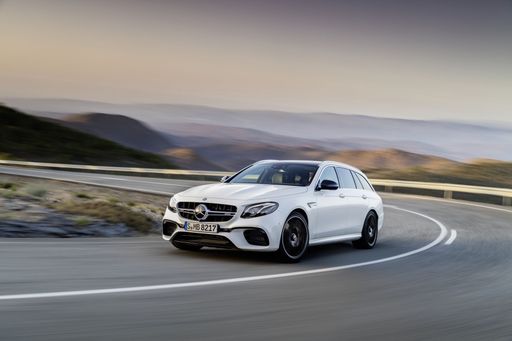 @ group-media.mercedes-benz.com
@ group-media.mercedes-benz.com
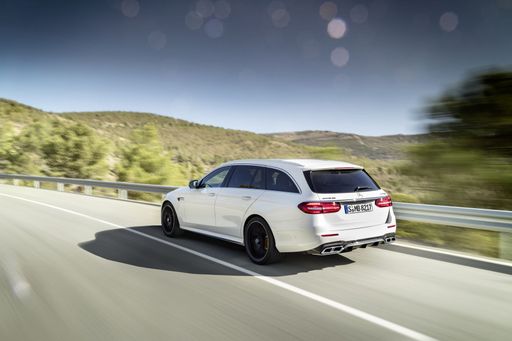 @ group-media.mercedes-benz.com
@ group-media.mercedes-benz.com
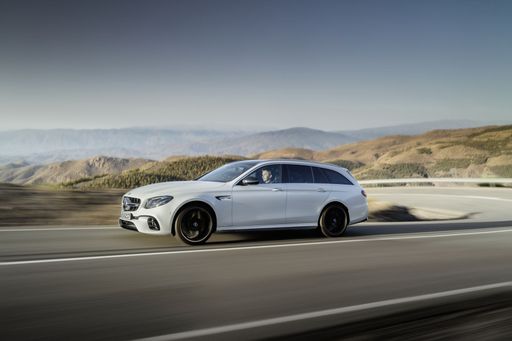 @ group-media.mercedes-benz.com
@ group-media.mercedes-benz.com
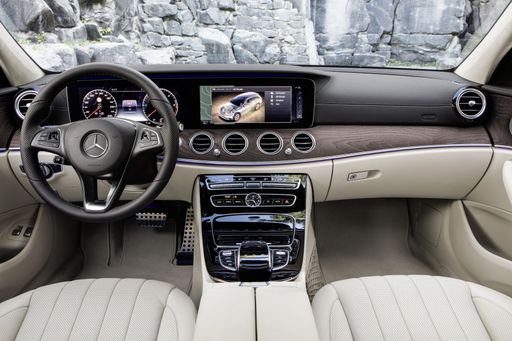 @ group-media.mercedes-benz.com
@ group-media.mercedes-benz.com
Tesla Model 3
The Tesla Model 3 stands out in the electric vehicle market with its sleek design and impressive performance capabilities. It offers a seamless driving experience that combines advanced technology with minimalistic interiors, creating a futuristic feel on the road. Additionally, its range and charging infrastructure make it a practical choice for both city commuting and longer journeys.
details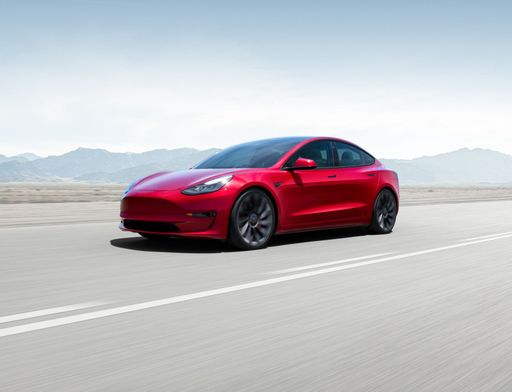 @ tesla.com
@ tesla.com
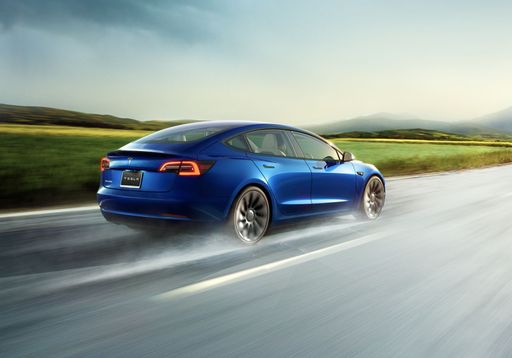 @ tesla.com
@ tesla.com
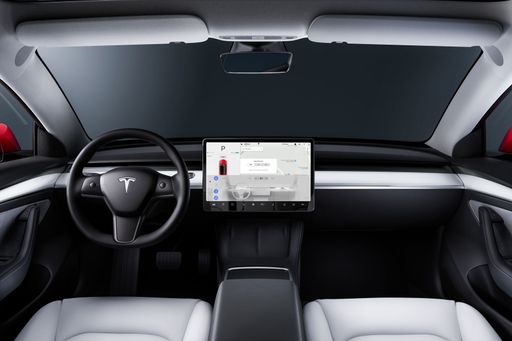 @ tesla.com
@ tesla.com
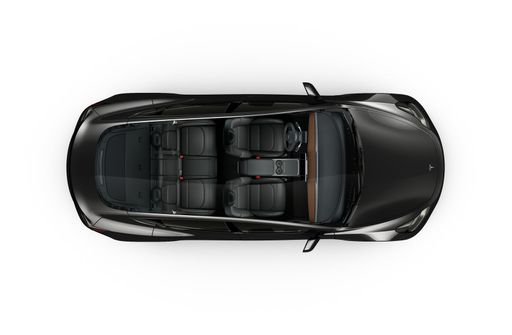 @ tesla.com
@ tesla.com

|

|
|
|
|
Costs and Consumption |
|
|---|---|
|
Price
52600 - 121800 £
|
Price
34300 - 50100 £
|
|
Consumption L/100km
1.7 - 7.9 L
|
Consumption L/100km
-
|
|
Consumption kWh/100km
-
|
Consumption kWh/100km
13.2 - 16.7 kWh
|
|
Electric Range
97 - 109 km
|
Electric Range
513 - 702 km
|
|
Battery Capacity
21.20 kWh
|
Battery Capacity
62 - 79 kWh
|
|
co2
44 - 181 g/km
|
co2
0 g/km
|
|
Fuel tank capacity
50 - 66 L
|
Fuel tank capacity
-
|
Dimensions and Body |
|
|---|---|
|
Body Type
Estate
|
Body Type
Hatchback
|
|
Seats
5
|
Seats
5
|
|
Doors
5
|
Doors
5
|
|
Curb weight
1900 - 2435 kg
|
Curb weight
1822 - 1929 kg
|
|
Trunk capacity
460 - 615 L
|
Trunk capacity
594 L
|
|
Length
4949 - 4959 mm
|
Length
4720 - 4724 mm
|
|
Width
1880 mm
|
Width
1850 mm
|
|
Height
1469 - 1497 mm
|
Height
1431 - 1440 mm
|
|
Payload
540 - 645 kg
|
Payload
303 - 333 kg
|
Engine and Performance |
|
|---|---|
|
Engine Type
Diesel MHEV, Petrol MHEV, Plugin Hybrid
|
Engine Type
Electric
|
|
Transmission
Automatic
|
Transmission
Automatic
|
|
Transmission Detail
Automatic Gearbox
|
Transmission Detail
-
|
|
Drive Type
All-Wheel Drive, Rear-Wheel Drive
|
Drive Type
Rear-Wheel Drive, All-Wheel Drive
|
|
Power HP
186 - 585 HP
|
Power HP
283 - 627 HP
|
|
Acceleration 0-100km/h
4.1 - 8.8 s
|
Acceleration 0-100km/h
3.1 - 6.1 s
|
|
Max Speed
213 - 250 km/h
|
Max Speed
201 - 262 km/h
|
|
Torque
320 - 750 Nm
|
Torque
420 - 660 Nm
|
|
Number of Cylinders
4 - 6
|
Number of Cylinders
-
|
|
Power kW
137 - 430 kW
|
Power kW
208 - 461 kW
|
|
Engine capacity
1993 - 2999 cm3
|
Engine capacity
-
|
General |
|
|---|---|
|
Model Year
2024 - 2025
|
Model Year
2023 - 2024
|
|
CO2 Efficiency Class
E, F, D, G, B
|
CO2 Efficiency Class
A
|
|
Brand
Mercedes-Benz
|
Brand
Tesla
|
Mercedes E-Class Wagon
Introduction to the Mercedes-Benz E-Class Wagon
The Mercedes-Benz E-Class Wagon, or T-Modell, has long been synonymous with luxury, versatility, and cutting-edge technology. It stands as a paragon of engineering excellence, continually raising the bar in the premium estate category. Catering to a wide array of needs, this model combines elegance with functionality, offering both performance and practicality in equal measure.
State-of-the-Art Powertrains
At the heart of the E-Class Wagon are its diverse powertrain options, designed to meet varying driver preferences. Boasting everything from mild-hybrid diesel and petrol engines to advanced plug-in hybrid systems, the model ensures reduced emissions without compromising performance. Engine options range from 220 PS to a thrilling 585 PS, supported by seamless automatic gearboxes that provide a smooth and dynamic driving experience.
Innovative Features and Technology
The Mercedes-Benz E-Class Wagon is brimming with innovative features that enhance safety and driving pleasure. The latest models come equipped with intelligent drive features, including advanced driver-assistance systems that anticipate and react to road conditions in real time. These include adaptive cruise control, lane-keeping assist, and autonomous emergency braking, working together to create a safer and more comfortable journey.
Exceptional Comfort and Practicality
Possessing an uncompromising attention to detail, the E-Class Wagon offers luxurious interiors that blend premium materials with cutting-edge technology. The spacious cabin seats five comfortably, while the load capacity of up to 615 litres ensures ample space for luggage and equipment. Options for exclusive trim lines, such as the AMG Line and Exclusive Premium variants, allow for bespoke touches tailored to individual tastes.
Eco-Friendly Efficiency
As the automotive industry pushes towards sustainability, Mercedes-Benz has ensured that the E-Class Wagon stays ahead of the curve. With CO2 emissions ranging from a mere 12 g/km in hybrid variants to a commendable efficiency of 181 g/km for the more powerful models, and fuel consumption as low as 0.5 L/100km, these estates deliver eco-friendly performance that doesn't sacrifice power.
Advanced Safety Systems
Safety is paramount in the E-Class Wagon, thanks to the incorporation of pioneering systems that protect both driver and passengers. The models benefit from sophisticated airbags, intelligent braking technology, and structural enhancements that have all contributed to an enhanced safety rating. Additionally, dynamic handling updates ensure a stable ride even in challenging driving conditions.
Conclusion
In summary, the Mercedes-Benz E-Class Wagon is a luxury vehicle that pushes boundaries through its impressive range of technical features and innovation. Whether for urban commutes or grand touring, the estate's harmonious blend of efficiency, performance, and luxury sets a new standard for what a premium estate can offer.
Tesla Model 3
Introduction to the Tesla Model 3
The Tesla Model 3 has quickly become a beacon of innovation in the world of electric vehicles (EVs), embodying a perfect blend of performance, technology, and sustainability. Known for redefining the electric car experience, the Model 3 stands as a testament to Tesla's commitment to pushing the boundaries of automotive design and engineering.
Design and Build
With its sleek fastback silhouette, the Tesla Model 3 is not only visually captivating but also aerodynamically efficient. Measuring at 4720 mm in length, 1850 mm in width, and 1441 mm in height, it optimally combines aesthetics with functionality. The Model 3 boasts a 594-litre boot space, offering ample room for everyday storage needs. Built with environmental efficiency in mind, its CO2 efficiency rating stands proudly at a perfect A, making it an ideal choice for the eco-conscious driver.
Powertrain and Performance
Under the bonnet, the Model 3 offers a diverse range of powertrains. It is available in both rear-wheel drive (RWD) and all-wheel drive (AWD) options, catering to different driving preferences. The electric motors deliver a remarkable power output ranging from 283 to 460 PS, translating to 208 to 338 kW. Depending on the variant, the Model 3 can accelerate from 0 to 100 km/h in a staggering 3.1 to 6.1 seconds. With a top speed between 201 and 262 km/h, the Model 3 promises an exhilarating driving experience.
Battery and Range
The Model 3 is equipped with a robust battery pack, available in capacities ranging from 62 to 79 kWh. This ensures an impressive electric range of 513 to 629 km on a single charge, catering perfectly to both city drivers and those who frequently embark on long-distance journeys. The energy consumption is between 13.2 to 16.5 kWh per 100 km, showcasing Tesla's efficiency in engineering cutting-edge EV technology.
Technological Innovations
The interior of the Model 3 is where technology takes centre stage. With its state-of-the-art autopilot feature, semi-autonomous driving is not just a promise but a reality. The vehicle continually updates over-the-air, ensuring that the software is always up-to-date with the latest features and improvements. Furthermore, the minimalist interior design, accentuated by a massive central touchscreen display, epitomises modernity and enhances the user experience with intuitive controls and navigation.
Cost Considerations
Given its advanced features and performance capabilities, the Model 3's price point ranges from €42,490 to €58,490. Monthly operating costs are estimated to be between €1,073 and €1,397, with per-kilometre costs between 42.9 and 55.9 cents, making it a competitively priced option within the premium EV market segment.
Conclusion
The Tesla Model 3 continues to lead the charge in the electric revolution, offering a compelling package of performance, innovation, and sustainability. For anyone seeking a modern, efficient, and technologically advanced vehicle, the Model 3 deserves serious consideration. With Tesla's groundbreaking vision and innovative engineering, this vehicle is not merely an investment in cutting-edge technology but also in a sustainable future.
The prices and data displayed are estimates based on German list prices and may vary by country. This information is not legally binding.
